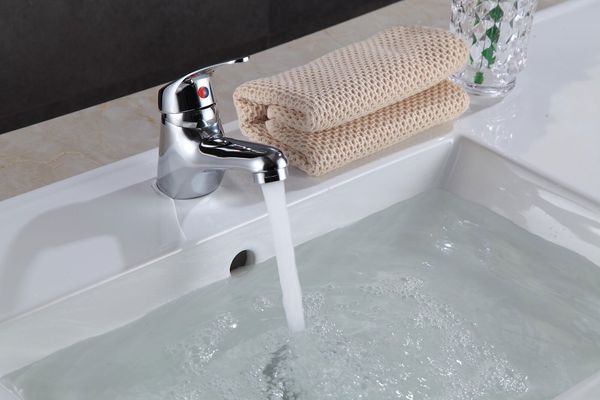
Do You Leave Faucets Open After Winterizing? (Leave In Lines)
When you are new to RV life, ask any question you want. Knowledge is what will protect you when you are on the road and when you are winterizing, make sure to ask all the questions you have. The answers will protect your RV.
You will get different opinions on this topic and the majority of owners say open. The reason is that the expansion that takes place can ruin your pipes if you leave the faucets closed. The key is to remember you left them open when you are hooking up to city water again.
To learn more about this topic, just continue to read our article. It explores the issue so you have the answer you need for the upcoming winter season. Those that say closed have forgotten they left the faucets open and made a mess in the spring.
Leave Faucets Open After Winterizing Or Not?

This is going to be up to your preference and memory. Most RV owners have stated that they leave their faucets open. This is due to the fact that they live in cold winter regions and pipe expansion is a real threat.
Other owners say to leave the faucet closed. However, they do not offer much evidence in support of their position. Some owners only have stated that they made a mess in the spring when they forgot to close the faucets when hooking up to city water.
They also had to clean up a mess afterward so they are firmly in the closed camp. Then there are owners who take the middle road and say it does not matter if you leave them open or closed.
This is something you will have to determine for yourself. Where you live will play a role in the pip expansion and there are horror stories that tell about cracked pipes and thread connections.
It is possible to close the faucets and not have a problem the next spring. If you decide to leave them open, just remember that you have RV antifreeze in the system so go and close the faucets before turning on the water supply. That will spare you a mess to clean up.
Do You Leave RV Antifreeze in Lines?

Again, this will be left up to your preference as either option is not dangerous to your RV. According to a Lichtsinn RV video, you are supposed to drain the RV antifreeze after filling your lines.
The reason for this step is that as you drain the antifreeze, you are pushing all the water out of the water system and there is nothing left inside to freeze. So your pipe is protected even though there is no antifreeze in the system
Other RV owners have had no issue with leaving the RV antifreeze in their water system. The only real danger is that the antifreeze will become slightly frozen if it gets cold enough. But not so frozen that it will expand and ruin your pipes.
Of course, when filling your RV’s water system with antifreeze, you bypass the water heater and the freshwater tanks. At least according to some owners. The trick is to use your low point drain valve to drain any remaining water that has gathered there when the antifreeze came into the system.
That way the remaining water will not harm your low point valve. If you lose a little antifreeze that is okay. But again, this decision is up to your preference and there is no right or wrong way to do this task.
Is RV Antifreeze Toxic To Humans?

No, it is not toxic as it is made from a different chemical than auto antifreeze is made with. RV antifreeze is made with ethanol or propylene glycol while auto antifreeze is made with ethylene glycol which is toxic to humans.
Do not let the close spelling of the two words ethanol and ethylene fool you. However, what is safe for humans is not necessarily safe for animals. It will take large amounts of RV antifreeze to make your pet sick but why take the chance?
Make sure when you remove the antifreeze from your RV that you empty it into a container and then dispose of it before your pet can investigate it. Keeping chemicals away from your pets helps prolong their lives. Plus, disposing of it properly will protect strays and wildlife in your area.
How Much RV Antifreeze do I Need To Winterize My RV?

The amount of antifreeze you will need will depend on the size of your trailer or drivable RV. Mini or tiny trailers will not take a lot of antifreeze to winterize and you may be lucky to get away with using only 1 bottle.
However, the rule of thumb goes like this- under 18 feet long, you will need 2 bottles of antifreeze. Between 18 and 30 feet long you will need 3 bottles and those RVs over 30 feet long need roughly 4 bottles.
Then do not forget to pour antifreeze down your drains to push out any water hiding in those pipes and protect them from the winter cold. Also, bypass your water heater when using antifreeze as that will just add to your cost and not do anything.
One final word on this topic is that antifreeze will freeze and expand. When that happens it will harm your pipes. But generally, this burst point is not till -50 or -100 degrees F, depending on the brand.
Some Additional Words
It really does not matter if you leave the faucets open or not. The antifreeze will protect your pipes regardless and make sure any water left in the system does no damage.
Like the faucet, leaving antifreeze inside your pipes for the winter is not wrong either. Both topics are up to your preference and experience as some people have had trouble using one way or the other.

